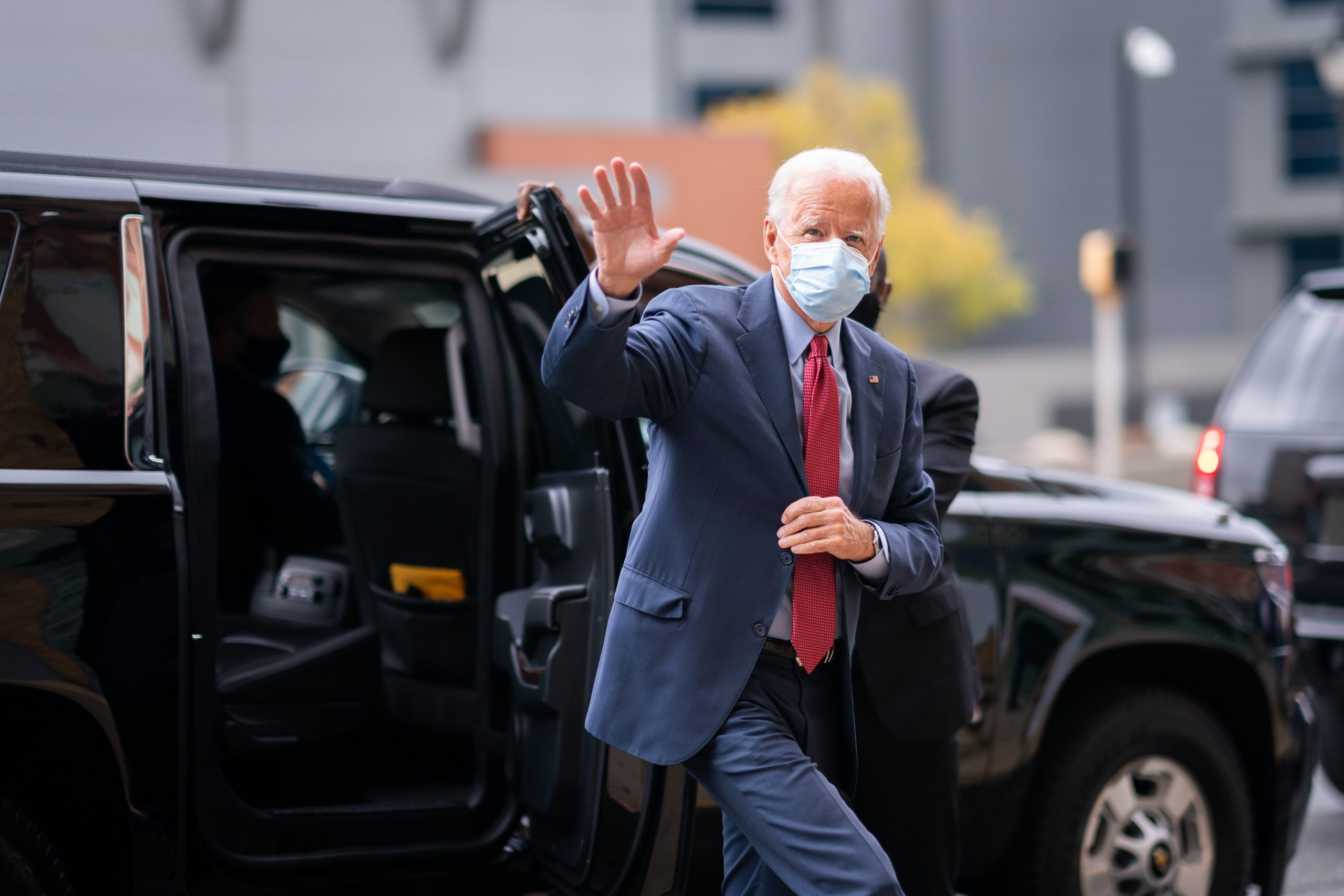A Biden Foreign Policy: Restraint by Circumstance, Not Design

The hope for many after the election is that the Biden administration will represent a return to normal, an opportunity to press U.S. primacy and restore the country to a position of pride and responsibility in the international system. While there might be much hand wringing about a return of the Foreign policy blob, the reality will be much more tepid. Given new domestic and international realities, any coming Biden administration foreign policy will be restrained by circumstance, but not design.
The domestic, political, and economic environment in the United States will significantly constrain the Biden administration’s ability to adopt ambitious foreign policy goals. The United States can hardly be expected to police the world and respond to every crisis abroad when it is facing social and economic strife at home all the while continuing to confront the pandemic.
A new surge of COVID-19 cases will prolong the virus’s already disastrous effects on the U.S. economy, altering forever the way we work and spend. While there is a spurt of optimism around the election and the news of an effective vaccine trial, the U.S. economy still has a long way to go before it can return to pre-pandemic levels of productivity and employment. Economic recovery is a long way off and the rest of the world will also face longer recoveries as COVID-19 cases rise in other regions. Working through domestic challenges like fighting the pandemic, rebuilding the economy, and addressing structural racism will be at the forefront of a Biden presidency.
President-elect Biden is probably not a true believer when it comes to a restraint-oriented foreign policy. Biden’s foreign policy vision sees the United States leading global efforts as a shining example to the world. Yet, the new administration will likely adopt several of the ideas and principles that exhibit restraint. The two broad areas most likely to see restraint-friendly change in U.S. foreign policy are the scope of U.S. goals and the rebuilding of America’s non-military policy tools and institutions.
Washington desperately needs a course correction to rein in global ambitions. The COVID-19 pandemic accelerated the trend of declining U.S. power. The American people possess neither the political appetite nor the economic strength at the current moment to reclaim the position of undisputed global military hegemon that has undergirded U.S. foreign policy since the end of the Cold War.
The incoming Biden administration should take this new reality to heart and adjust its foreign policy goals accordingly. Two issue areas ripe for a change include U.S. relations with Iran and North Korea. The Trump administration’s all-or-nothing approach to both the Iran nuclear deal and diplomacy with North Korea highlight the limits of U.S. power.
The Biden administration could chalk up some early foreign policy wins if it is willing to set more limited goals such as those in the original Iran nuclear deal, collaborating with like-minded partners willing to help enforce a diplomatic and economic encirclement of Iran until they give up nuclear ambitions. The other area of focus will be arms control with North Korea, a revision away from complete denuclearization. The toothpaste is already out of the tube in North Korea given recent ballistic missile tests and displays of new capabilities, and myopic focus on denuclearization has failed to advance U.S. interests.
Adjusting U.S. foreign policy ambitions should go hand in hand with the restoration of the U.S. foreign policy toolkit. The COVID-19 pandemic has highlighted both the dangers of focusing on the military aspects of national security and the value of diplomacy, international institutions, and cooperative engagement to deal with collective threats. The Trump administration actively sought to withdraw the United States from global cooperative forums such as the World Health Organization and the Paris Climate Accord. While Trump rightly pressured allies to shoulder a greater burden for their own defense, his general approach to alliance management also made it harder for the United States to accomplish non-military policy goals by cooperating with friendly countries.
The Biden administration could make some small course corrections that would begin rebuilding the foreign policy toolkit. A return to diplomacy and reinvigoration of the State Department as an effective institution will restore the brains of U.S. foreign policy. Moving beyond Trump will be an important signal about American values and soft power, providing a strong counter point to Chinese wolf-warrior diplomacy. Rampant spending exhibited by the U.S. defense budget will end simply as a reaction to the economic damage caused by the pandemic and a restoration of Republican fears over the national debt.
Pressing domestic political and economic challenges will have to be addressed before the incoming Biden administration can adopt anything approaching a proactive grand strategy. The world has changed significantly in the last four years, and U.S. foreign policy ambitions and approaches will have to evolve to meet this new reality. The errors of the last four years will have to be reversed, resulting in a restrained vision of American power moving forward. There can be no other choice given the giant hurdles the U.S. has to overcome before it can effectively wield power and influence on the global stage.
Brandon Valeriano is a senior fellow at the Cato Institute. Eric Gomez is director of defense policy studies at the Cato Institute.
Comments